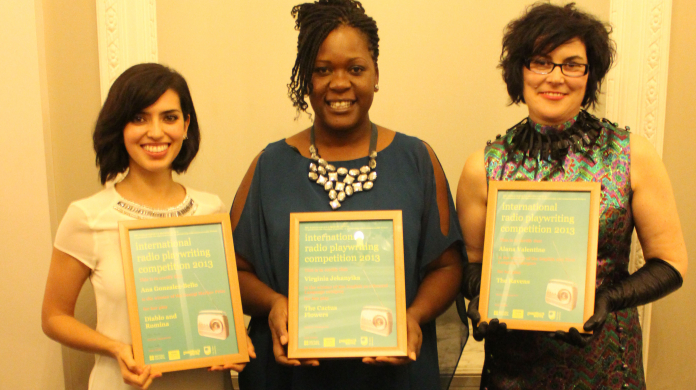Marion Nancarrow tells Eleanor Turney about how the International Radio Playwriting Competition has changed lives
Taking the pulse of the world – the BBC International Radio Playwriting Competition
I’ve very happily been involved with the competition for more than 20 years – since I was a junior producer, in 1994! I think one of the most brilliant stories about the competition is that I know of two winners from the last two competitions, for whom winning has made such an enormous difference to their lives that they have actually left their jobs in order to become writers. Virginia Jekanyika [who won the English as a second language category in 2013-14] was living and working in Zimbabwe, and she’s now in the UK and studying creative writing. I think that’s just fantastic.
The competition began in 1979 in conjunction with the British Council – they were there from the very beginning. Recently, we added on the Georgi Markov Prize, which is for the most promising play – that’s been running for two years. Last year we had our most diverse shortlist ever; plays arrive from all over the world, but the most recent shortlist had plays from Kenya, Ireland, Australia, Sweden, Columbia, Germany, Mexico, India and Zimbabwe. That’s a bit of a first, and I think it’s extraordinary. We had entries from 86 countries last year, and the thing about the playwriting competition is that it really can change lives.
There are two winners every year, but what we try to do, when the scripts are good enough, is to ensure that they have another life. For example, a play that didn’t win in 2012, we offered to Radio 4. It was commissioned by Radio 4 and made, and it subsequently won the Richard Imeson award for best original script by a new writer in 2012. In his speech, the winner said: “The International Playwriting competition made me what I am today – a writer,” which was pretty amazing.

Virginia Jekanyika with sister Takunda and cast of The Cactus Flowers. Photograph: BBC
I think that the range of judges we’ve had has been really interesting, as well. We’ve had: Alan Bennet, Doris Lessing, Wole Soyinka, Lenny James, Eileen Aitkins, Indira Varma, Nina Wadia, Kwame Kwei Armah. Kwame gave me one of my favourite quotes ever. He said, as a judge, “I don’t care if you’ve got three jobs and five children, write your play. Just write it, this is such an opportunity. You can come to London, you can have your play looked at by the BBC, you could have your play broadcast to millions on air.”
We’ve had plays coming in, written in pencil on the back of betting slips – people really do write whenever and wherever they can. I think my favourite story, though, is about a South African writer who won the competition and went on to get a commission from the BBC. When he won the competition, he was chided by an actress in his play for not writing big enough parts for women. So, when he got his next commission, he wrote the play and then he cut up all the speeches and got out a pair of scales. He weighed all of the characters’ speeches, and whoever had too much he took their speeches and re-wrote them so another character said them, and he did that until they all had the same weight on the scales. Then he put the play back together again! I thought this was fantastic.

Alana Valentine with cast of The Ravens. Photograph: BBC
My other favourite was a young woman from Bangladesh, whose script I read in 1994. She wrote a lovely play, which we loved, but it was too short, only about 20mins long. We remembered her, and when we were running some writing workshops for writers with English as a second language, with the British Council in fact, we invited her. We had writers from all over the world. In her reply, accepting her place, she said “I never believed that dreams really do come true.” She is now a Professor of English at a University in Bangladesh. She got a Fulbright Scholarship, trained in America and then went back to Bangladesh to teach. I like to think that the Playwriting competition played a very small part in that story!
The audience is at the heart of everything the BBC does, and that the British Council does, and this is one of the most extraordinary ways for us to connect to our audience and to hear their stories. It’s the longest slot on the World Service – 53 minutes – so it’s a unique way to be in touch. I describe it as putting our finger on the pulse of the world, which might sound a little bit over the top but I think it really is what we do.
Marion Nancarrow is Executive Producer for BBC Radio Drama and a judge for the International Radio Playwriting Competition. The deadline for entries is 31 January, and more information can be found on the BBC's website. Marion was talking to Eleanor Turney.
